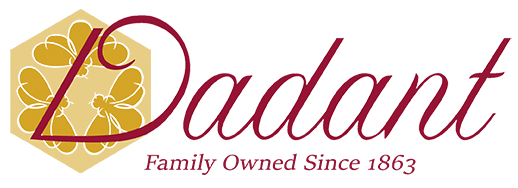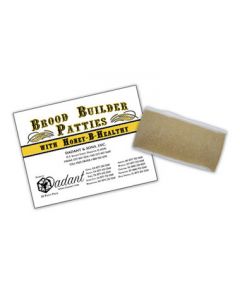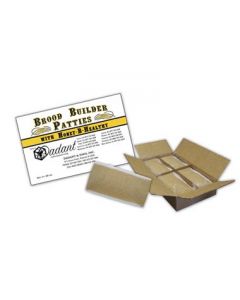Feeds
Honey bee feed can provide food when natural supplies are not available to both sustain or stimulate bees. When bees produce honeycomb, bees need 6 to 8 pounds of honey for every 1 pound of bee wax. As long as your bees are producing bee wax, keeping a bee feeder in the hive can help speed up that process. Beekeepers can also stimulate the honey bees into raising a brood before the natural stimulants are abundant by using Brood Builder Dry or Brood Builder Patties .
Oftentimes, feeding bees during the spring lets them get a head start on the spring flowers and will help the bees build up the colony for the honey flow that follows the spring build-up. With more mouths to feed, a colony will appreciate extra help to sustain itself during the early spring months.
The best food for feeding bees in the winter is, of course, the one they make for themselves: their own honey, but sometimes that isn’t possible. Many beekeepers use sugar syrup to sustain their bees, but this method lacks some of the essential nutrients a bee needs to survive and stay healthy. These feeds are tailored to various situations, either as a general purpose feed, sustaining your bees during the winter, or to build brood. Whatever the situation you can count on our bee feed to contain all the fat, fibers, and protein your happy little bees will need.
Our AP23® Winter Patties help to keep the honey bees alive when the winter is ending, a critical time of the year when honey bees often starve. When the spring floral sources have not yet bloomed, Brood Builder and pollen substitutes (AP23 Pollen Substitute Dry and AP23 Pollen Substitute Patties) get the honey bees going, and ready to visit the flowers when they bloom and have the nectar available.

















